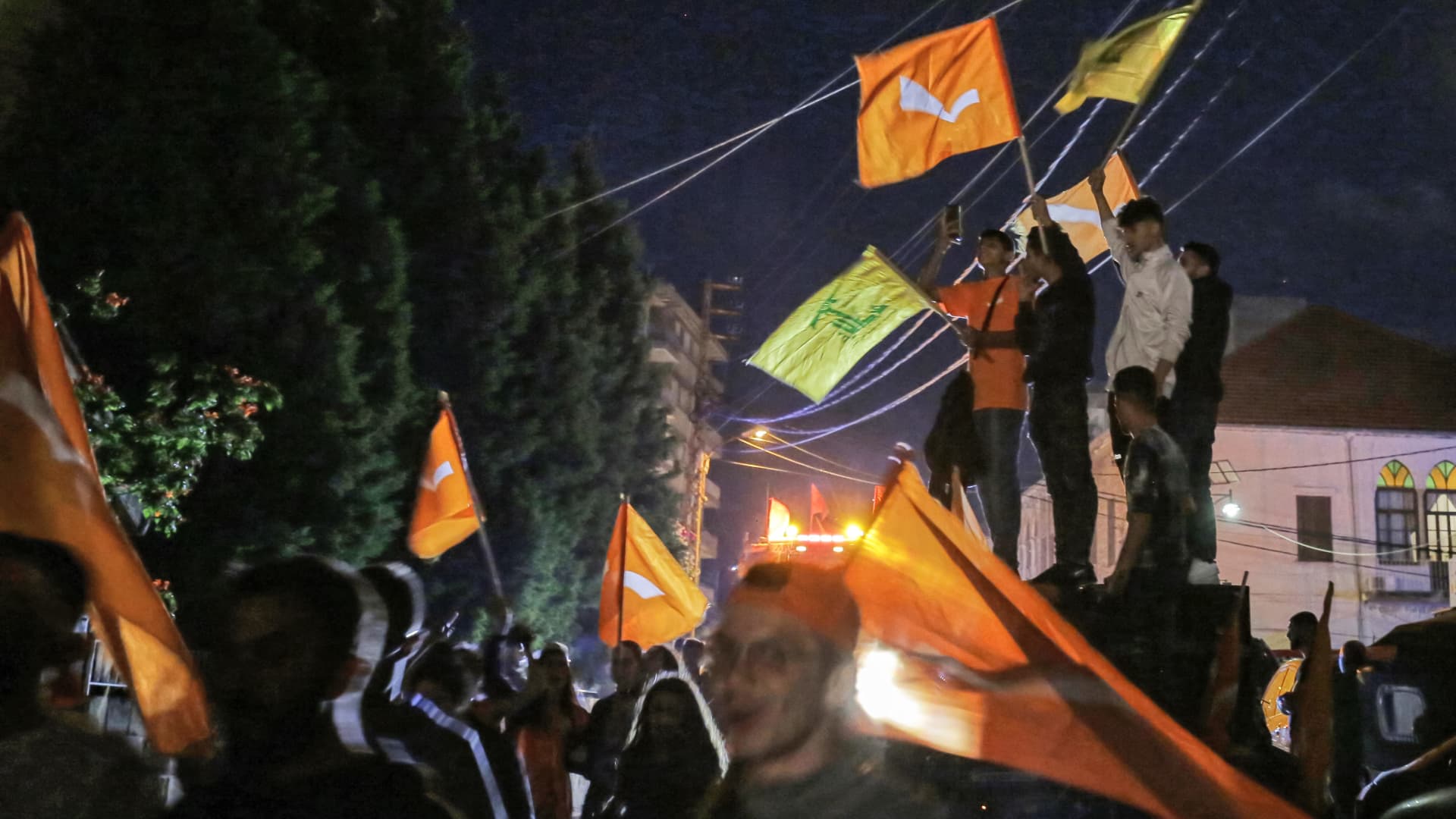
Lebanon, a nation of nearly 7 million, is home to 18 different religious communities.
Ibrahim Chalhoub | Afp | Getty Images
Lebanon has voted in the country’s first parliamentary elections since its economic meltdown in 2019 and the Beirut port blast the following year.
Dealing a major blow to the Iranian-backed Hezbollah, preliminary results from Sunday show the party lost seats in areas long held by their allies in the south of the small Mediterranean nation.
“People have spoken, and they said: ‘We are against Hezbollah, against the establishment, and this is what we want’.” Laury Haytayan, the leader of opposition party Taqaddom, told CNBC’s Hadley Gamble on Monday.
“Today, we see that we have 11 MPs [members of Parliament] that are from civil society, or new established political parties, plus the traditional opposition, so we have a big bloc in the Parliament that is going to take action,” Haytayan added.
Lebanon, a nation of nearly 7 million, is home to 18 different religious communities. Because of this, its unique but widely criticized consensus government rests on a power-sharing structure whereby the prime minister, president and speaker of the house must come from the country’s three largest religious groups: Sunni, Maronite Christian and Shiite, respectively.
Final results for the makeup of Lebanon’s 128-seat Parliament have still yet to be determined, but gains have been reported for Lebanese Forces, a Christian group opposed to Hezbollah. The party, led by Samir Geagea won at least 20 seats, dethroning the Free Patriotic Movement, a Hezbollah ally, as the country’s biggest Christian party in Parliament.
At least 11 seats are expected to go to reform politicians, part of independent lists aiming to unseat the political elite. However, more established parties will still likely maintain a grip on the country. The economic crisis has encouraged many voters to cast ballots against traditional parties, who the U.N. blame for the country’s “deliberate depression.”
The win for Lebanon’s opposition groups are “quite significant,” Karim Bitar, associate professor of international relations at Saint Joseph University in Beirut, told CNBC on Monday.
“The playing field is uneven because they did not have the clientelist networks, foreign backing or financial means that usual establishment parties have,” he said. But he added that this could be the “beginning of the emergence of a reformist, non-sectarian opposition in Lebanon.”
Turnout was low at 41%, according to Interior Ministry figures, compared to 2018 which saw nearly a 50% voter turnout. Tripoli, one of Lebanon’s poorest cities, saw voter turnout at around 3%. Soaring fuel costs and overall despair at the political system could be to blame for the low level of votes.
Many Sunni voters, allied with former prime minister and leading Sunni politician Saad Hariri, boycotted the vote, setting up pool parties in stronghold areas to show their dissatisfaction at the election.
Hariri has stepped away from the limelight, leaving a gap in Sunni politics and his Future Movement party without a leader. Lebanon’s expatriate vote was held last weekend, and saw three times the turnout from the previous election in 2018, which marked the first time citizens could vote from outside of Lebanon.
Meanwhile, there were reports on Sunday of voter intimidation and coercion across the country. The Lebanese Association for Democratic Elections reportedly had to leave polling stations in the south and and in the city of Baalbek after Hezbollah and Amal supporters issued threats.
The EU’s elections monitor also reported that two-thirds of polling stations were difficult to access for voters with physical disabilities.
Accelerating economic crisis
In 2019, the Lebanese pound fell sharply and is now trading at around 27,000 pounds to the U.S. dollar on the black market. In February, Lebanon’s inflation rate soared to 215% on an annual basis, and the country’s monthly minimum wage, once at $450, is now roughly equal to $25. The World Bank has said Lebanon ranks among the world’s worst financial crises since the mid-19th century.
Lebanon is also facing a food crisis, accelerated by the war in Ukraine which has crippled wheat exports globally, directly hitting countries throughout the Middle East and North Africa.
The new Parliament will be responsible for implementing key economic reforms, necessary to unlock $3 billion in aid from the International Monetary Fund, who last month reached a “staff-level deal” with Lebanon.
The funds, released over a period of four years, are dependent on the government’s economic reform plan, which includes amendments to Lebanon’s banking sector, an independent audit of the country’s central bank, and particularly a solution to Lebanon’s massive financial sector losses, which stand at $72 billion.




